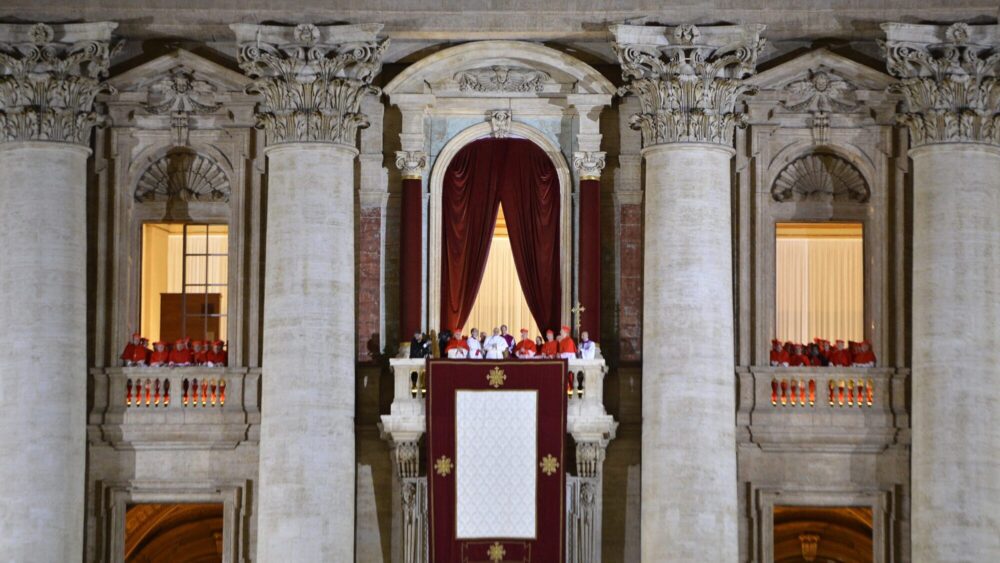
(Photo by ANDREAS SOLARO and ANDREAS SOLARO / AFP)
The first conclusions of the Synod on Synodality have barely been announced, but new prospects for Vatican reform are emerging, according to journalist Diane Montagna, Rome correspondent for The Remnant. Pope Francis is said to be working on a document aimed at changing the conditions for electing the pope in conclave, in particular by allowing women and lay people to take part in the vote.
Pope Francis’ objective would be to reform the apostolic constitution, Universi Dominici Gregis, promulgated in 1996 by Pope John Paul II on the vacancy of the Apostolic See and the election of the Roman pontiff. With the help of the Italian Jesuit cardinal canonist Gianfranco Ghirlanda, Francis has reportedly been working since the spring on a document to amend the constitution. In the run-up to the synod, working meetings with Cardinal Ghirlanda are said to have intensified.
The choice of Cardinal Ghirlanda is not insignificant. A canonist very close to Pope Francis, he played a major role in the reform of the Roman Curia finalised by the constitution Praedicate Evangelium, which allowed lay people to occupy senior positions within the Roman Curia. He also replaced Cardinal Raymond Burke as patron of the Order of Malta after the order’s constitution was overhauled.
According to The Remnant investigation, several areas of reform are under consideration.
The first concerns the general congregations, which are the gatherings of cardinals that precede the election and play a crucial role in the election process since they allow the many cardinals, who often know little or nothing about each other, to meet and get to know each other since the future pope is among them. The document provides for the exclusion from these general congregations of cardinals over the age of eighty who do not vote because of their age. Although they do not vote, for the time being they are fully involved in these discussions and therefore have an eminent role to play in the discernment of cardinals.
It should be kept in mind that if the reform being considered by Pope Francis were to succeed, figures such as Cardinal Zen, former Bishop of Hong Kong, or Cardinal Brandmüller, former secretary to Benedict XVI—two conservative cardinals who both signed the latest dubia concerning the Synod on Synodality—would no longer take part in the general congregations. The process would also give even greater influence to the cardinals appointed by Pope Francis, who are by definition the youngest members of the College of Cardinals.
In addition, the way in which the general congregations operate would be changed with the disappearance of plenary sessions in favour of small working groups under the direction of a leader, organised along the lines of what was done during the synod. This would allow much closer control of the discussions.
Finally, the document allegedly drawn up under the influence of Cardinal Ghirlanda intends to limit the cardinal vote to 75% of the total. The remaining 25% would be made up of lay people, women, and nuns, appointed by Pope Francis while he is still in the Apostolic See, in the spirit of what the pope put in place for the Synod on Synodality, where for the first time some women acquired the right to vote on certain texts.
The document is still in draft form and has not yet been promulgated by Pope Francis, but its publication would certainly meet with vigorous opposition among the cardinals.
Questioned by the LifeSiteNews website by email about his possible involvement in such a reform of the conclave, Cardinal Ghirlanda issued vigorous denials, calling the rumours reported by The Remnant “absolutely false.”
